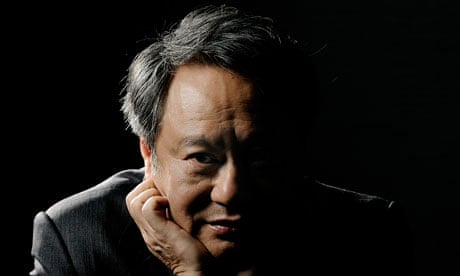My late father, Sheng Lee, was a traditional Chinese authority figure. He and my mother moved to Taiwan following the Chinese civil war. My father represented the traditional Chinese patriarchal society. I was always living in his shadow; that was my big thing. I was shy and docile and never rebellious. But he taught me how to survive and how to be useful. He was a stately man who was very pragmatic, the headmaster of a high school – I don't know if that was a good or a bad thing.
When I was growing up [as one of four children] he made me study all the time; studying was all that was important to him. He was not much fun and he was kind of disillusioned in me in some ways. Artistically, I was very repressed. I never really got to express myself and wasn't exposed to much art other than watching movies once a week.
My father wanted me to have a respectable profession. Teaching was respectable to him. He said: "Get a degree and teach in university." When I wasn't working he would say: "What are you going to do? Are you going to set an example for your kids?" But I just wanted to make movies, so I never fulfilled the hopes he had for me. Even when I was successful, he would say: "Now it's time to do something real."
My mother, Se-Tsung, was very submissive with my father and obedient. I don't have many issues with her: she was a very good mother to me and my siblings. When I was growing up, women didn't matter as much. It was patriarchal, all about the father. Everyone tried to please my father.
As a kid I could not really concentrate on books or homework. I did OK to poorly at school because I would fantasise all the time, having a lot of fun in my head because I didn't have a lot of fun. It took 35 years to release all that energy. I was repressed and then that repression was released when I became a filmmaker.
When I had my own family I was different because I didn't want to do that to my own kids, so I am fun. My wife [Jane Lin, a microbiologist] is the tiger mom in the home, the wise one in the family. I am like the third kid at home. She makes all the rules. We [our two sons, Mason, an actor, and Haan, an artist] obey. Before I got work as a director, my wife worked. I was lucky, my wife provided for the family herself, and never asked me to find a job. I was picking up the kids from school and doing the cooking and writing. Most of the time I didn't do anything – there was a lot of anxiety because I couldn't invest in anything apart from filmmaking.
My kids are interested in what I do. Haan is very good at drawing. He wants to be a graphic artist or a graphic novelist. But he went through a period, which I went through myself, that on the surface looked like he was being inert and lazy. I couldn't figure out what he was up to, so I said, "Do some drawing for me." On Life of Pi, one of our concept artists dropped out of the production so my son stepped in and did some wonderful artwork for us – he designed Pi's life raft. He's 23, but he still has a kid kind of head, which was great because he just put some chopsticks and a ring together and made a triangular raft.
I left Taiwan to come to America to study drama and then returned home to make the biggest movie I've made. It was very emotional for me filming Life of Pi in Taiwan. Everybody wanted to help and make it happen. There was a lot of spiritual encouragement and financial help, and they invested a lot of love in me. It was like coming full circle, going back there. It was a visit and a homecoming. Taiwan is like my floating island. It is an island that's not recognised as a country; it doesn't have a definite identity. It's a very special political situation there: everything's undecided. Floating. It's an island, it's oceanic and I've been adrift, floating like Pi, all my life.
I think we all have to grow up and detach from our parents and become independent, whether we like it or not. We all have that moment of lost innocence and in other ways we refuse to grow up. We want to remain kids and I don't think anybody ever really grows up. They always have the kiddie part inside them even though they have to face the facts of life and mature.
People ask me why I make different types of film: Jane Austen, Brokeback Mountain, and The Hulk. If we had a choice, we'd have many lovers instead of sticking to one marriage. I don't get to do that in life [he laughs]. I have been married to the same woman.
I love doing different types of film.
My work is all consuming. Over the years we've become used to it. When I am working, my family have to see it not as selfish but that we are doing something together for the audience or for humankind, whatever – they have things in their lives too. But I think there are two types of family relationships. One is the physical time you're together. The other I think of as spiritual. We all believe in something that can bind us together. My family is interested in what I do. A work of art can be uplifting, and I think my family sees the value of that.









Comments (…)
Sign in or create your Guardian account to join the discussion